Sessions
UDL Symposium Program
The UDL Symposium Program provides an overview, including abstracts, of the keynotes, presentations and workshops.
Keynotes
-
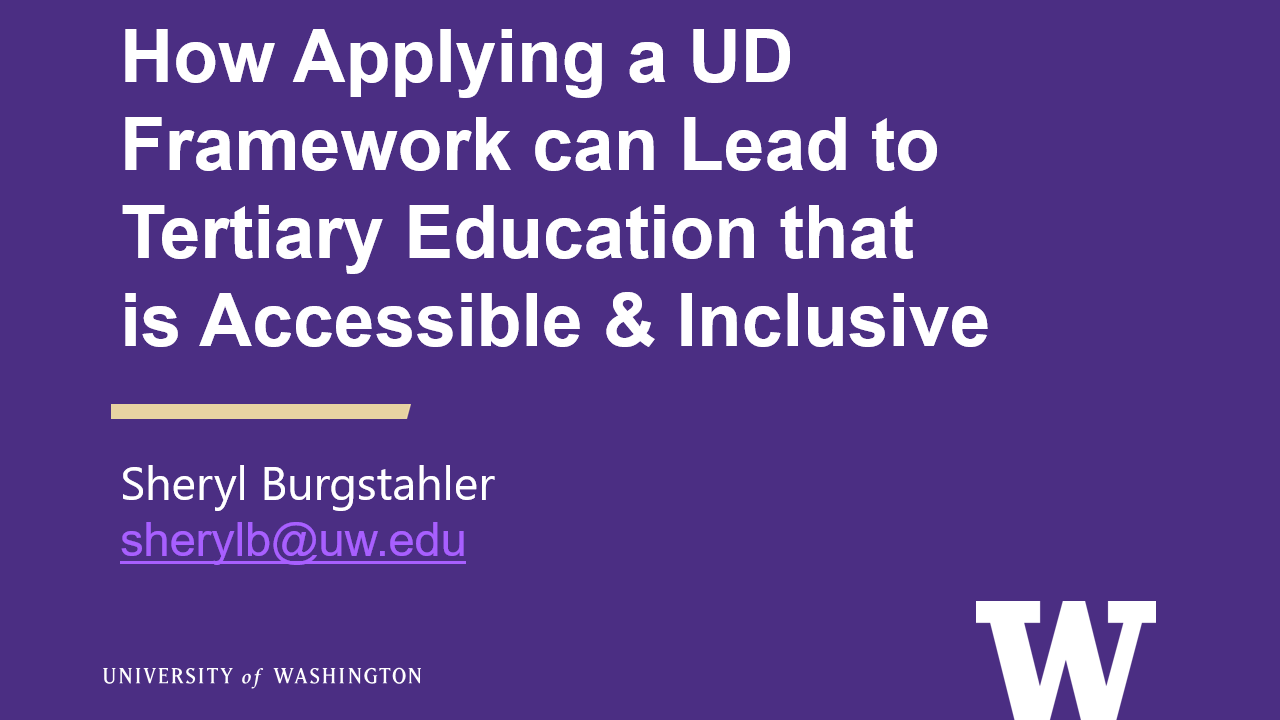
How applying a UDL framework can lead to tertiary education that is accessible and inclusive
In this keynote session with Dr. Sheryl Burgstahler, participants learnt about how UDL combined with UD principles for physical and technological spaces can be used as a foundation to underpin the design of all aspects of instruction and support services.
-
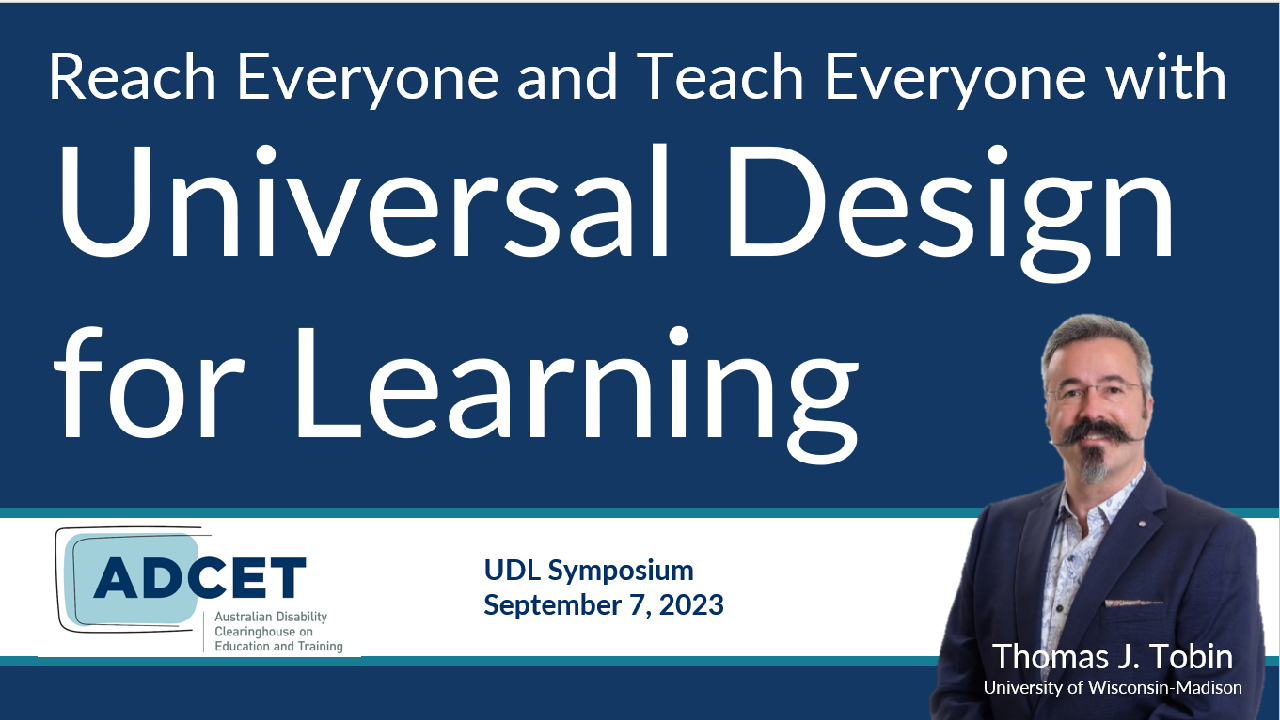
Reach Everyone and Teach Everyone with Universal Design for Learning
During this keynote presentation with Dr Thomas Tobin, participants discovered how to implement UDL in the design of interactions with learners, creating spaces for best teaching practices to take place – in the classroom and beyond.
Day 1
Presentations
-
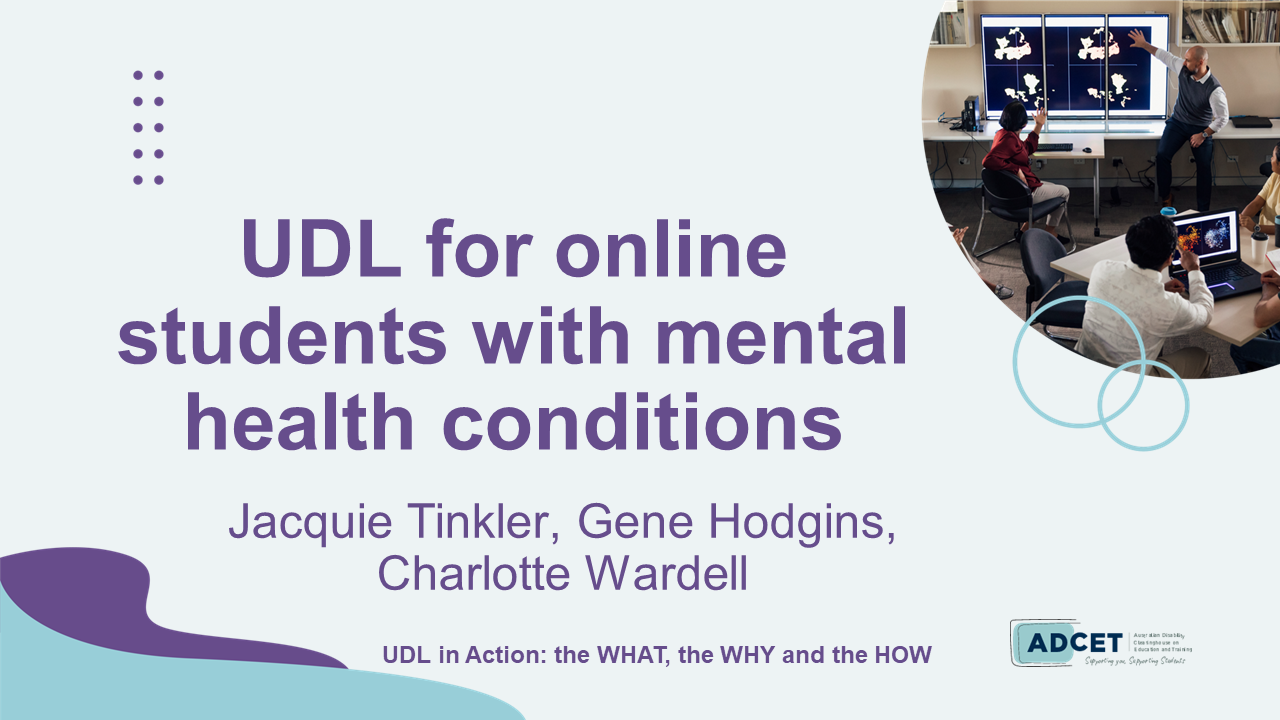
1A. UDL for online students with mental health conditions
This session presented the findings of a study that investigated the learning experiences of online students with mental health conditions.
-
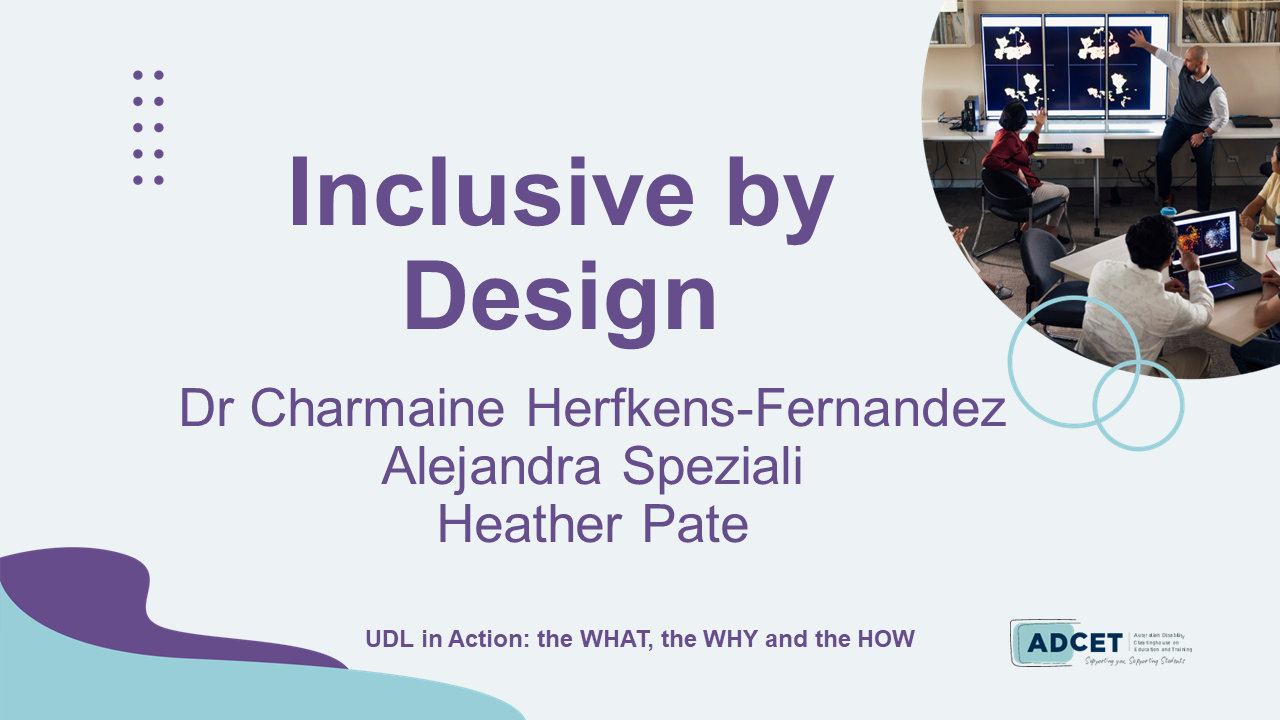
2A. Inclusive by Design: Engaging and Supporting International Students through UDL
This presentation provided an overview of a PD workshop taking a practical UDL approach to engage and support international students in an Early Childhood Education course.
-
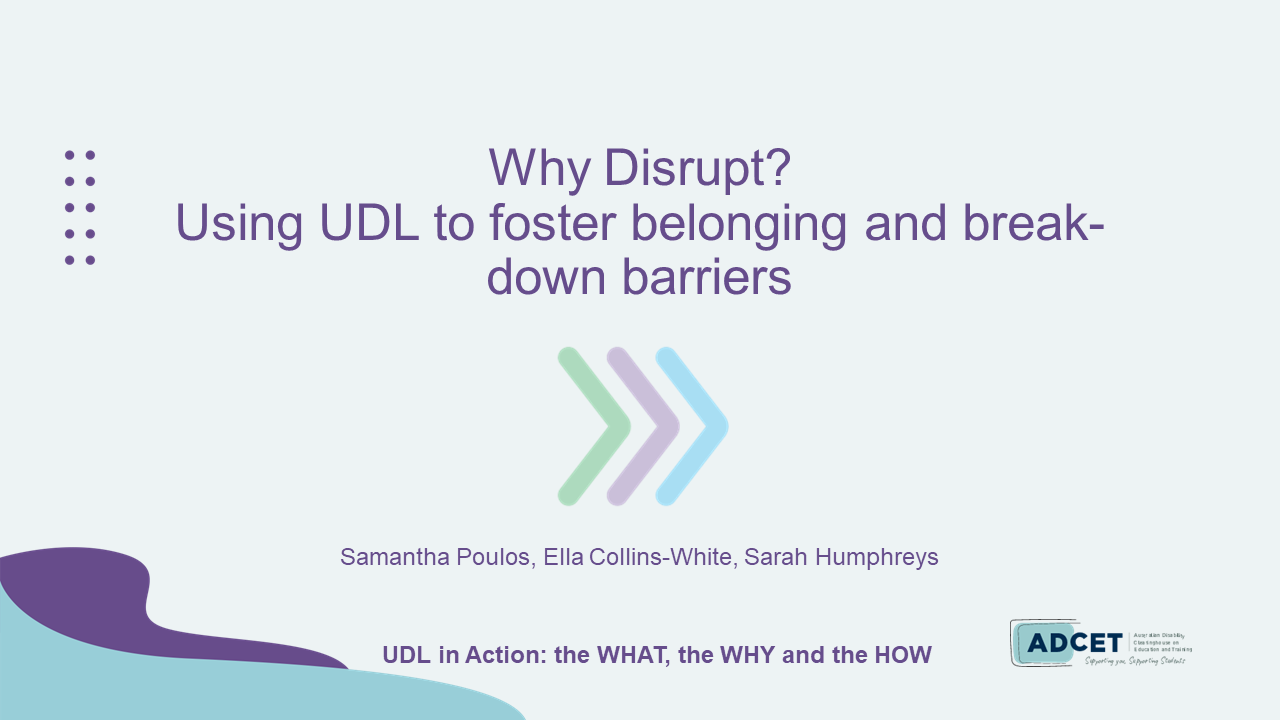
3A. Why Disrupt? Using UDL to foster belonging and break-down barriers
Barriers exist in many forms and places such as physical, practical and social spaces. This presentation sought to explore why disrupting these learning environments is crucial to fostering belonging in our context.
-
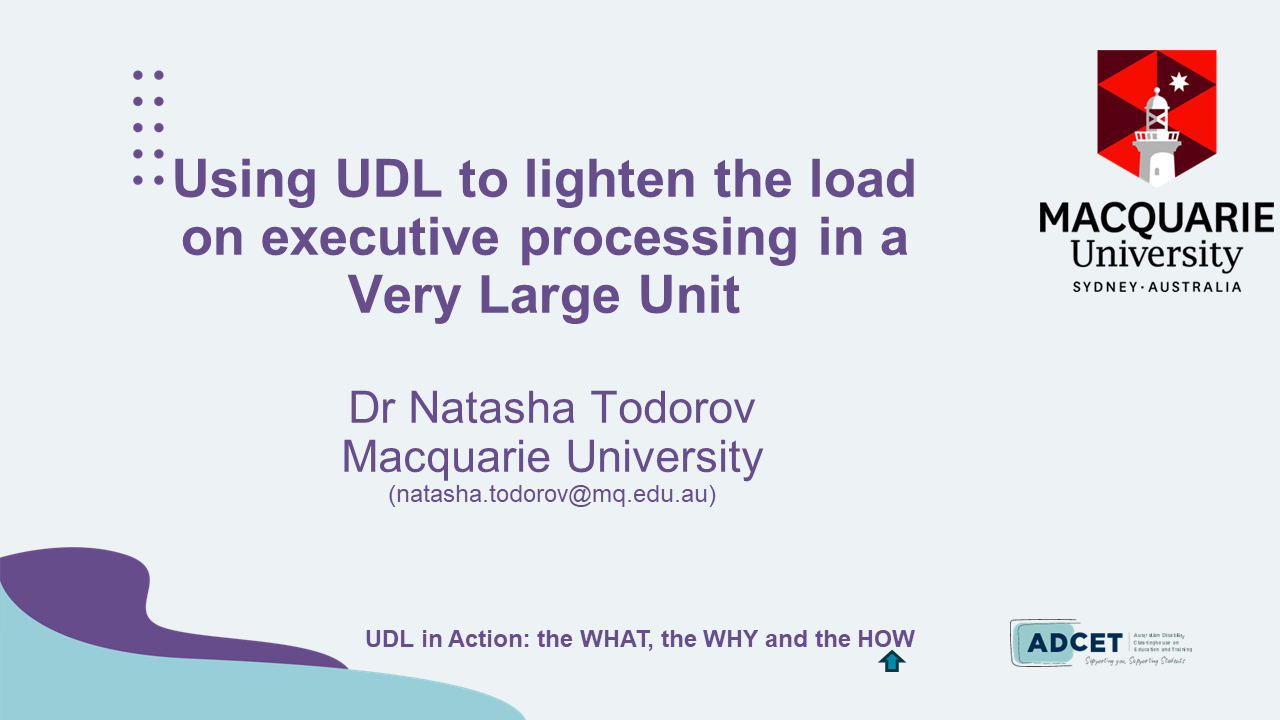
4A. Using UDL to lighten the load on executive processing in a Very Large Unit
This presentation examined the way Universal Design Principles were applied to a Very Large first year Psychology Unit to assist a growing cohort of neurodiverse students.
-
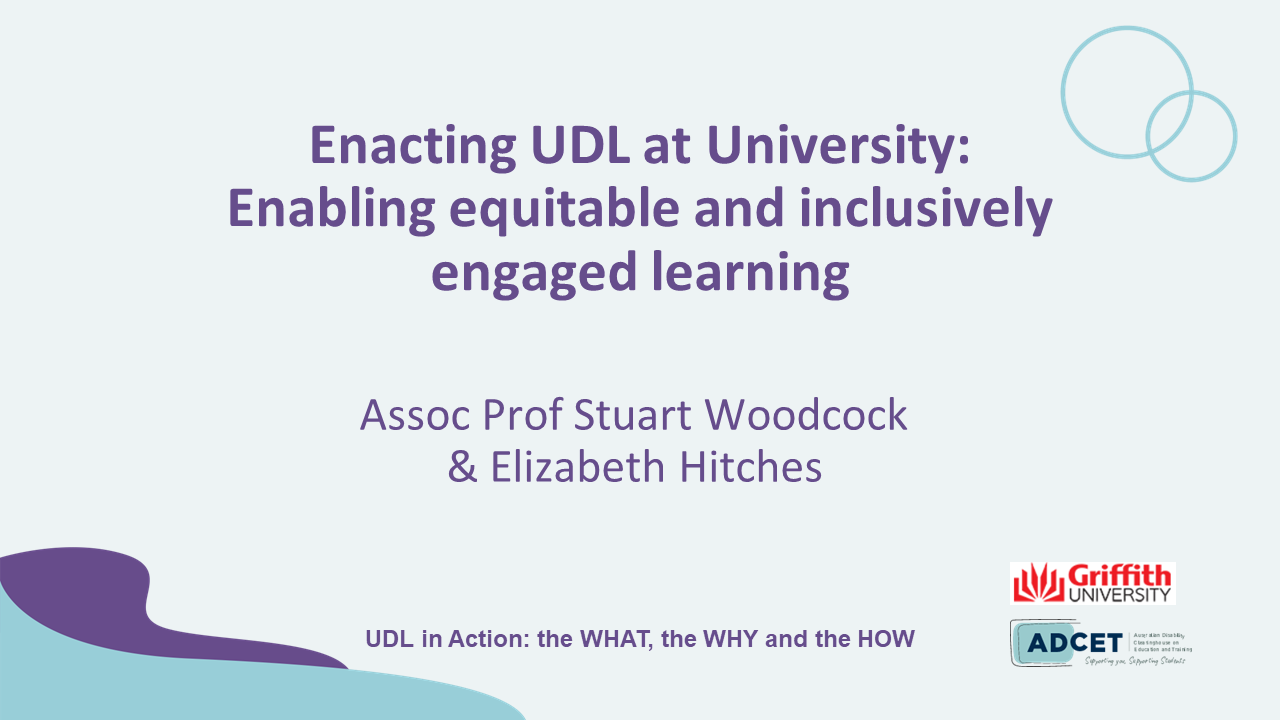
1B. Enacting UDL at University - Enabling equitable and inclusively engaged learning
This presentation outlined how taking a UDL approach to one university course has enabled more equitable and inclusive learning opportunities.
-
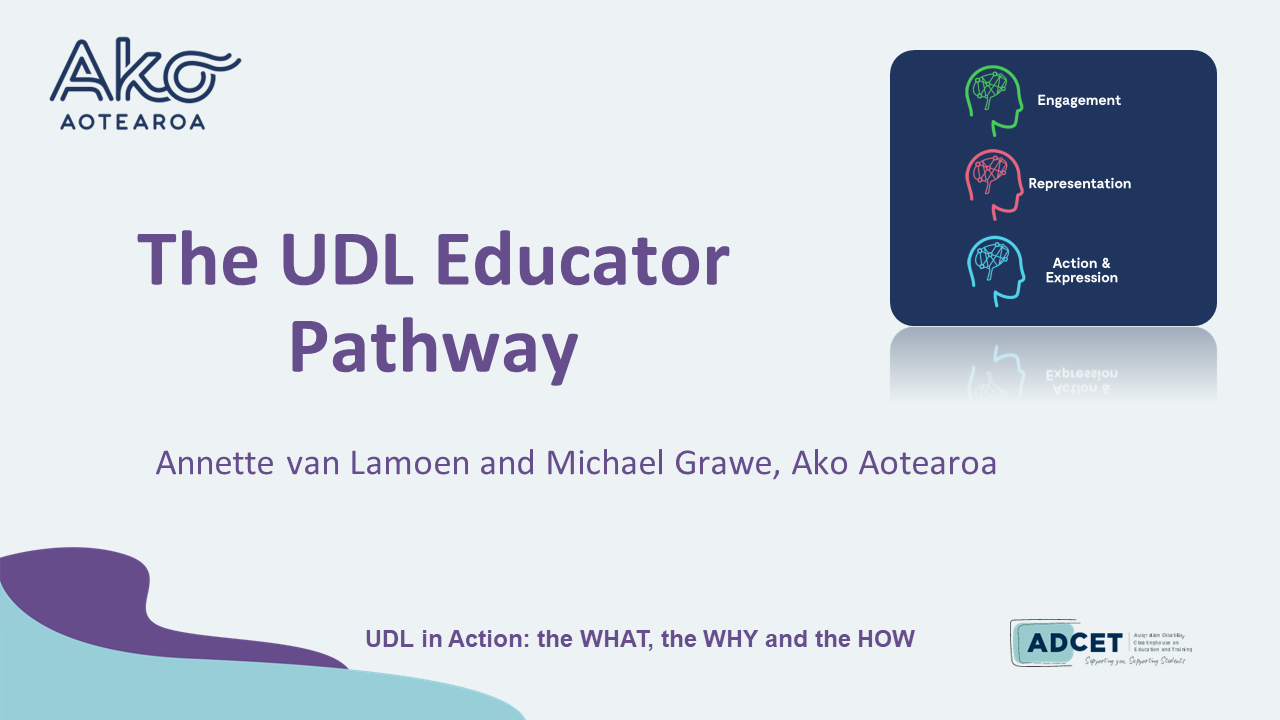
2B. The UDL Educator Pathway
Join Annette and Michael as they demonstrate a new, free, self-directed course on UDL for educators who are new to UDL. This is a step-by-step introduction, where UDL principles are ‘unpacked’ and discussed.
-
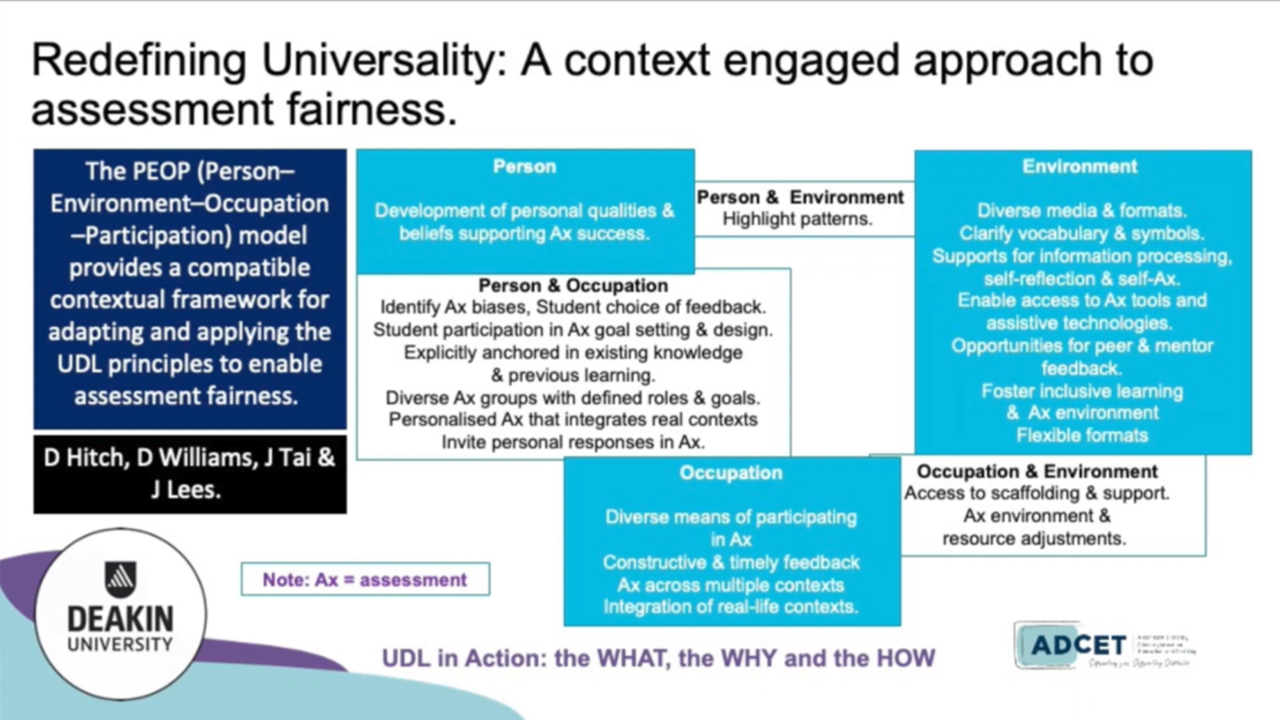
3B: Redefining Universality: A context-engaged approach to assessment fairness
This presentation critically discussed the adaptability of UDL guidelines within diverse learning contexts and challenged their prescriptive application. A context-engaged approach to UDL was proposed.
-
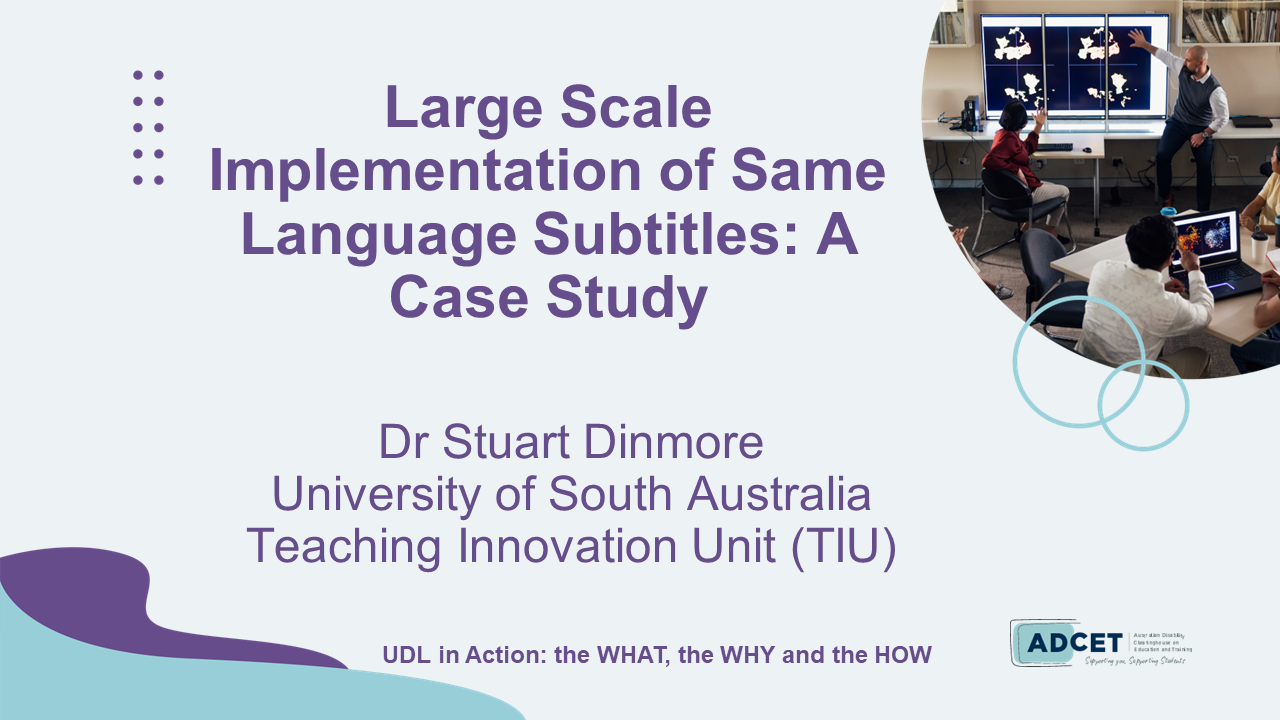
4B. Large Scale Implementation of Same Language Subtitles - A Case Study
This presentation outlined the process, from conception to successful delivery, of SLS video content across multiple programs of study in a fully online learning environment.
Workshops
-
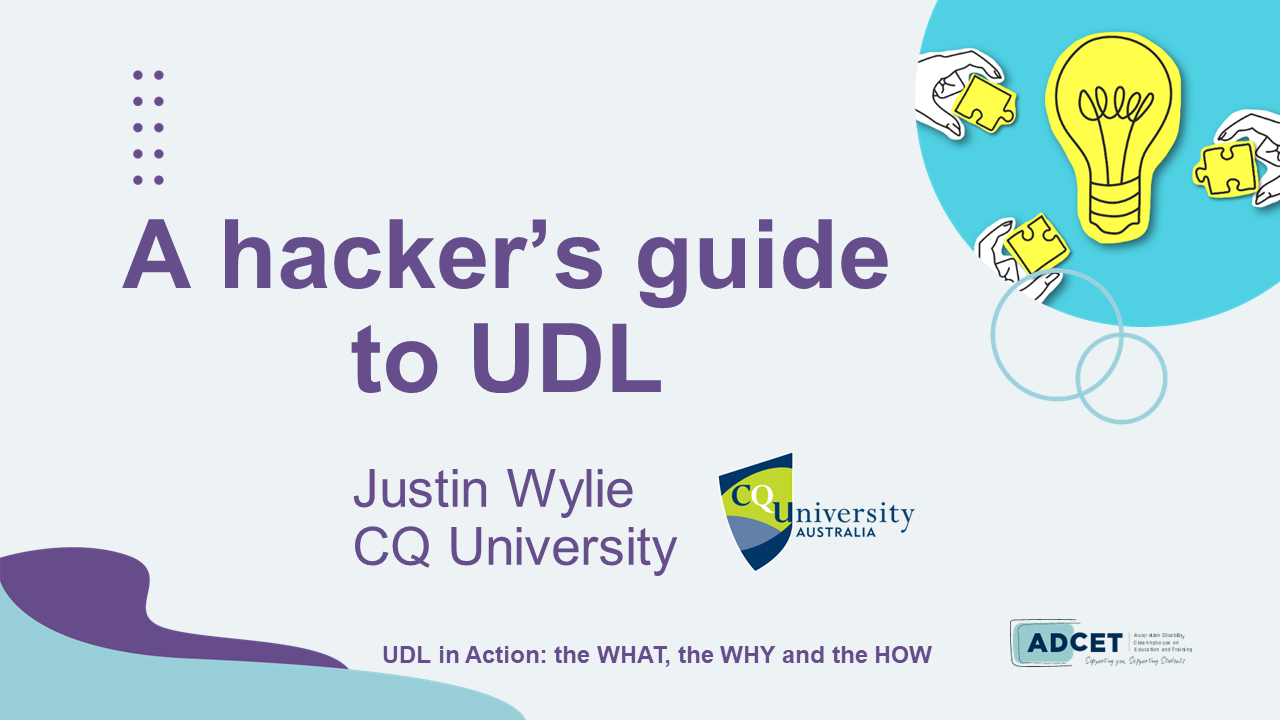
1E. A hacker's guide to UDL - Simple, sustainable & effective UDL strategies
This presentation provided tips, hacks & suggestions on how to implement UDL into your everyday workflow when developing learning resources for digital first delivery.
-
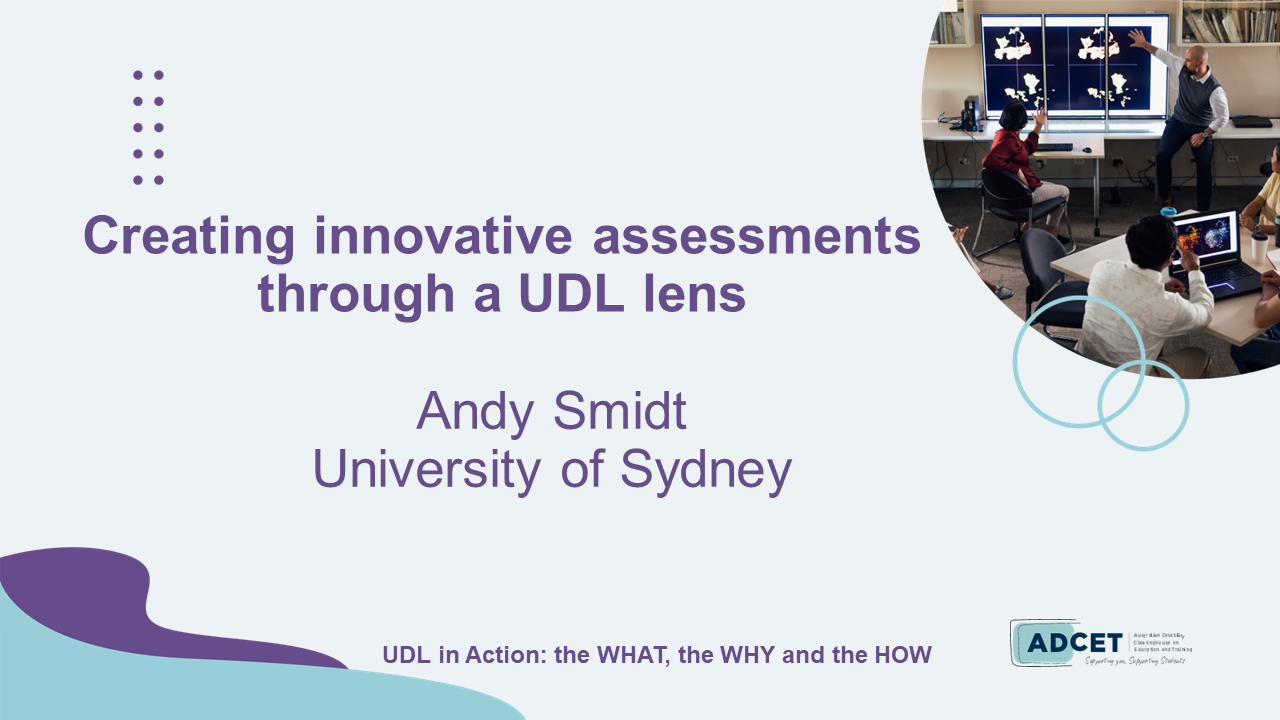
2E. Creating innovative assessments through a UDL lens
This session presented an overview of theoretical concepts relating to assessments in the higher education sector with reference to UDL.
-
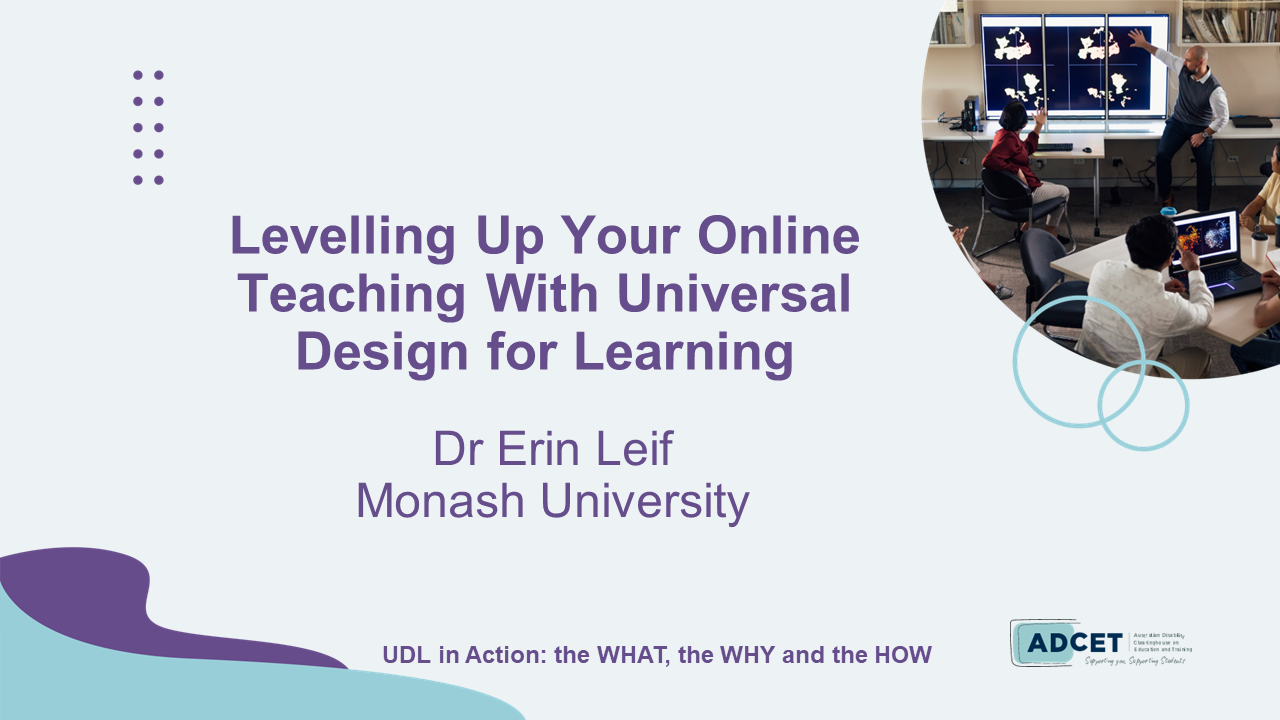
3E. Levelling Up Your Online Teaching with Universal Design for Learning
Dr Erin Leif described a seven step UDL approach for designing inclusive and accessible online instruction that meets the needs of diverse learners and shared illustrative examples from her own practice.
Day 2
Presentations
-

1C. Universal online design - informed by accessibility, usability and social learning frameworks
When we design online learning, we can learn from usability research, accessibility guidelines and social learning frameworks. These help us create an inclusive environment for all learners - the heart of universal design for learning.
-
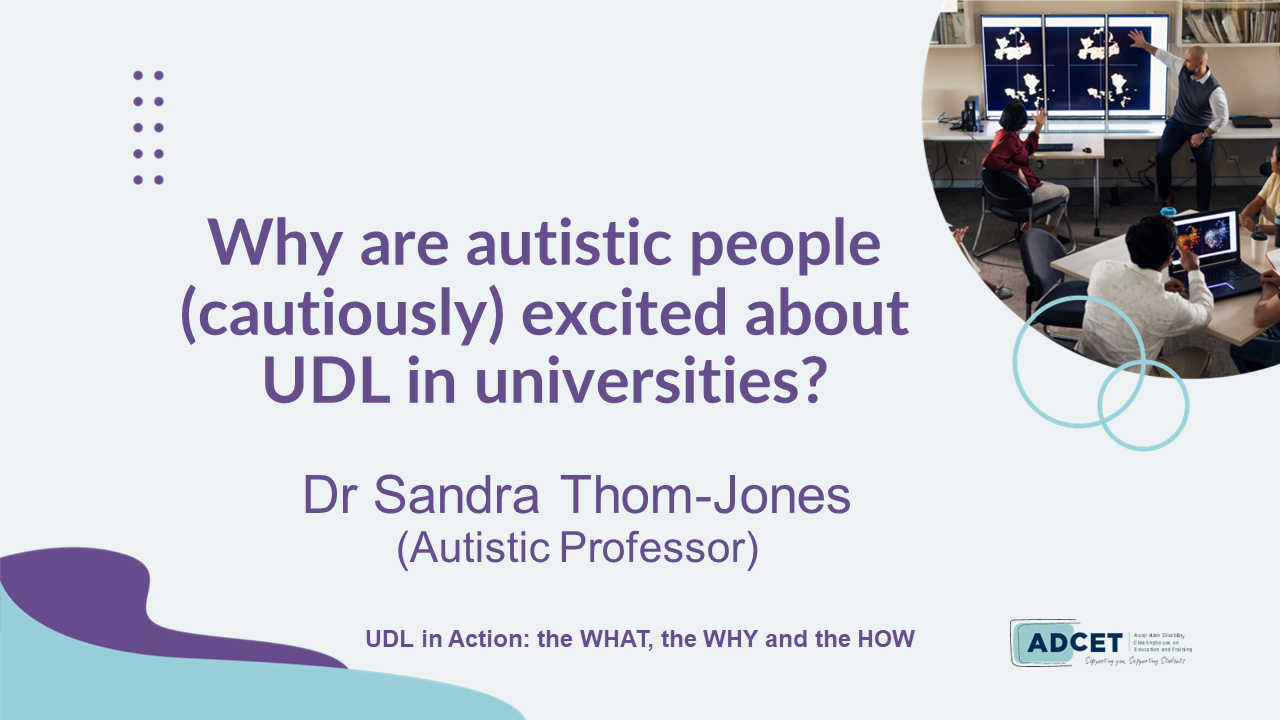
2C. Why are autistic people (cautiously) excited about UDL in universities?
Autistic Australians are less likely to hold bachelor’s degree or higher than those with a disability and those without disability. As an autistic researcher and educator, Sandra discussed how UDL can improve outcomes for autistic students.
-

4C. Weaving the thread of UDL throughout the curriculum tapestry
UDL has been an integral thread, binding principled approaches to UniSC initiatives in blended and online learning. Follow Amy and Anita's journey through multiple Accessibility and UDL initiatives and discover their ongoing work to improve UDL awareness, practice and recognition.
-
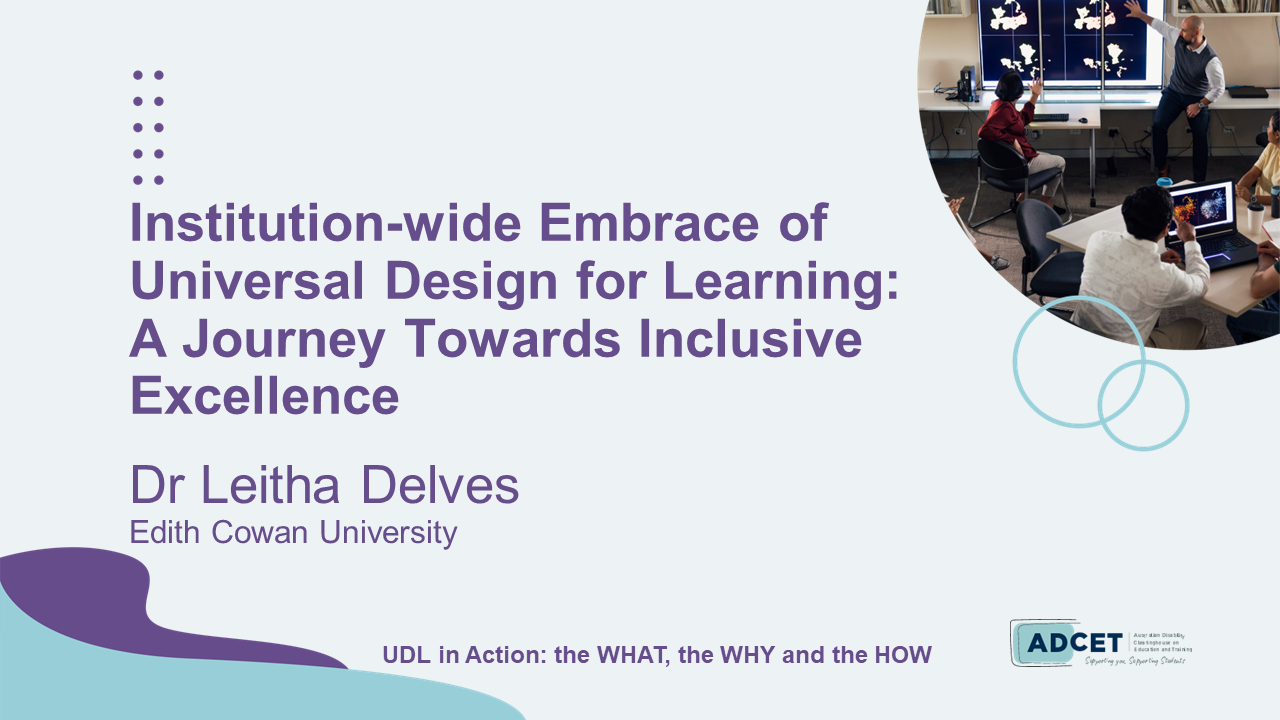
1D. Institution-wide embrace of Universal Design for Learning: A journey towards inclusive excellence
This presentation explored how to approach the challenge of operationalising wholesale adoption of UDL principles in all curricula in all disciplines across a University - first steps on a challenging journey.
-
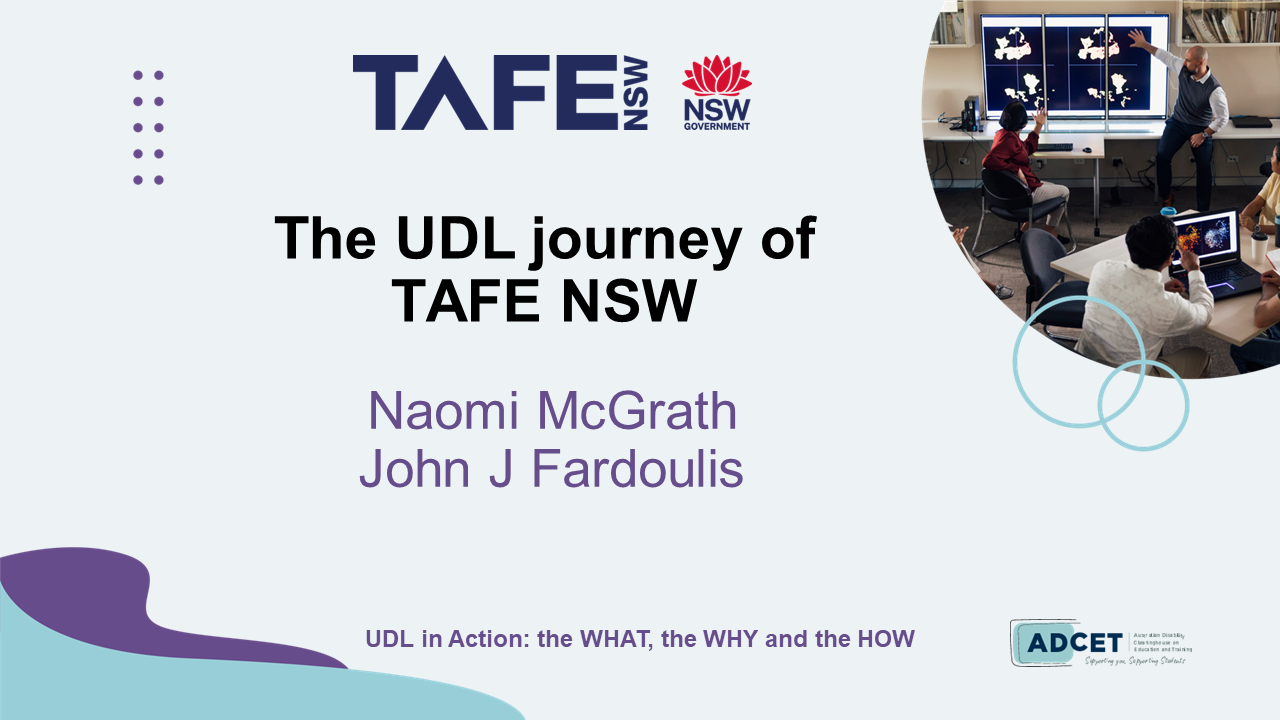
2D. The UDL journey of TAFE NSW
This presentation explored the TAFE NSW Product & Quality Group’s journey of inclusive education with a focus on accessibility standards and moving towards embedding a UDL framework as a baseline for product development.
-
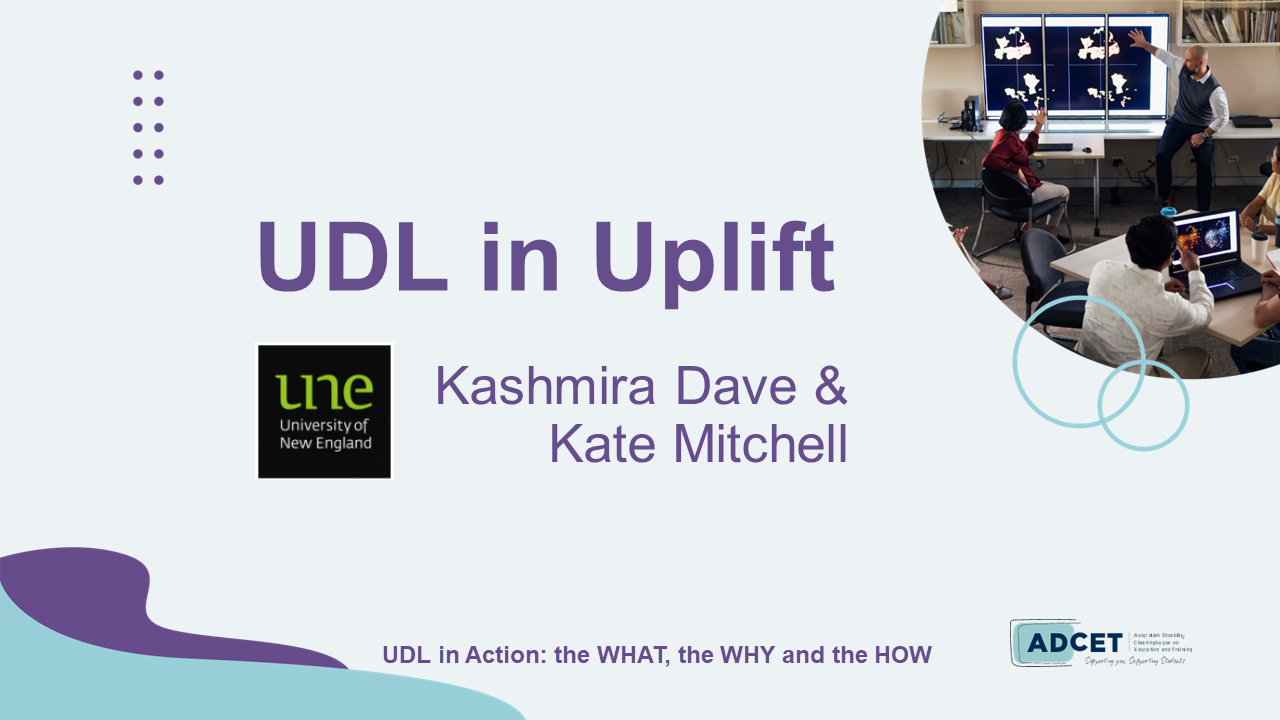
3D. UDL in UpLift
This presentation outlined how UDL is included as a part of Project Uplift at UNE and highlighted what UNE is doing to include UDL in newly designed units. Project UpLift is part of UNE's new LMS transition.
-
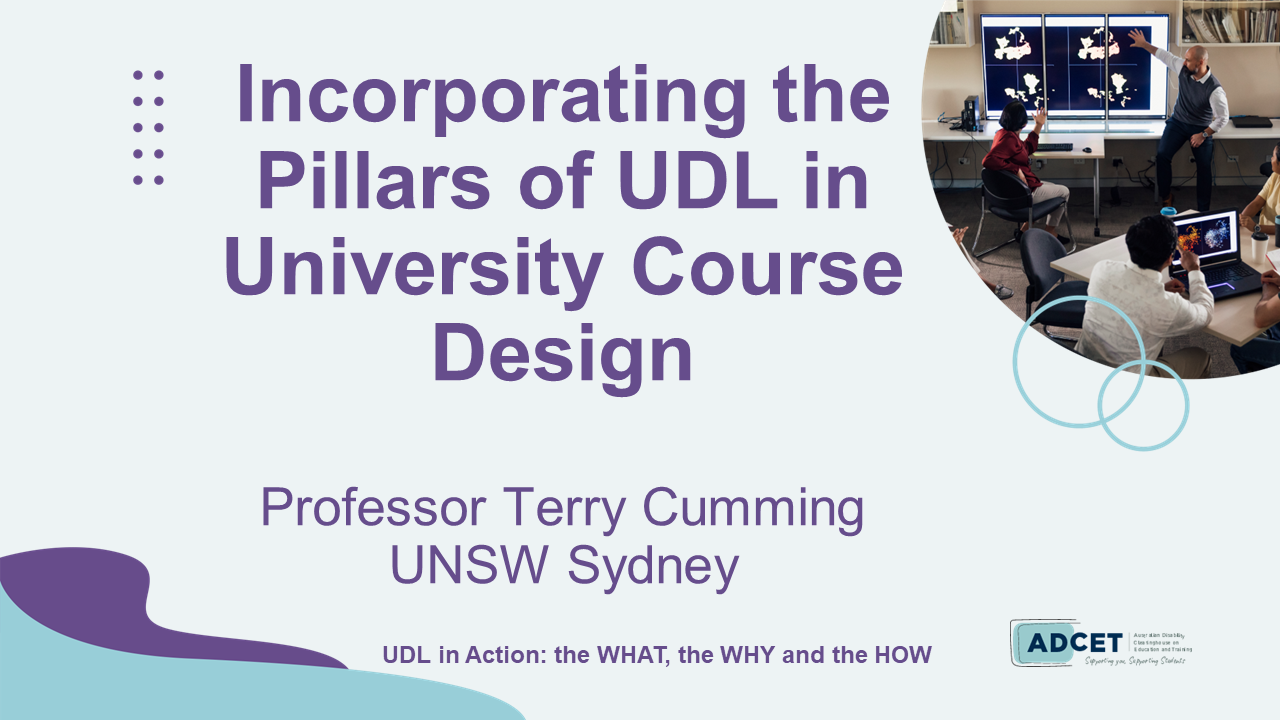
4D. Incorporating the Pillars of UDL in University Course Design
Participants discovered ways to incorporate the principles of UDL in their course design. Topics covered included: providing multiple ways for students to access content; ways to provide students with choices in meeting the course's learning outcomes; supporting students organisation and time management skills; and accessible communication.
Workshops and Plenary
-
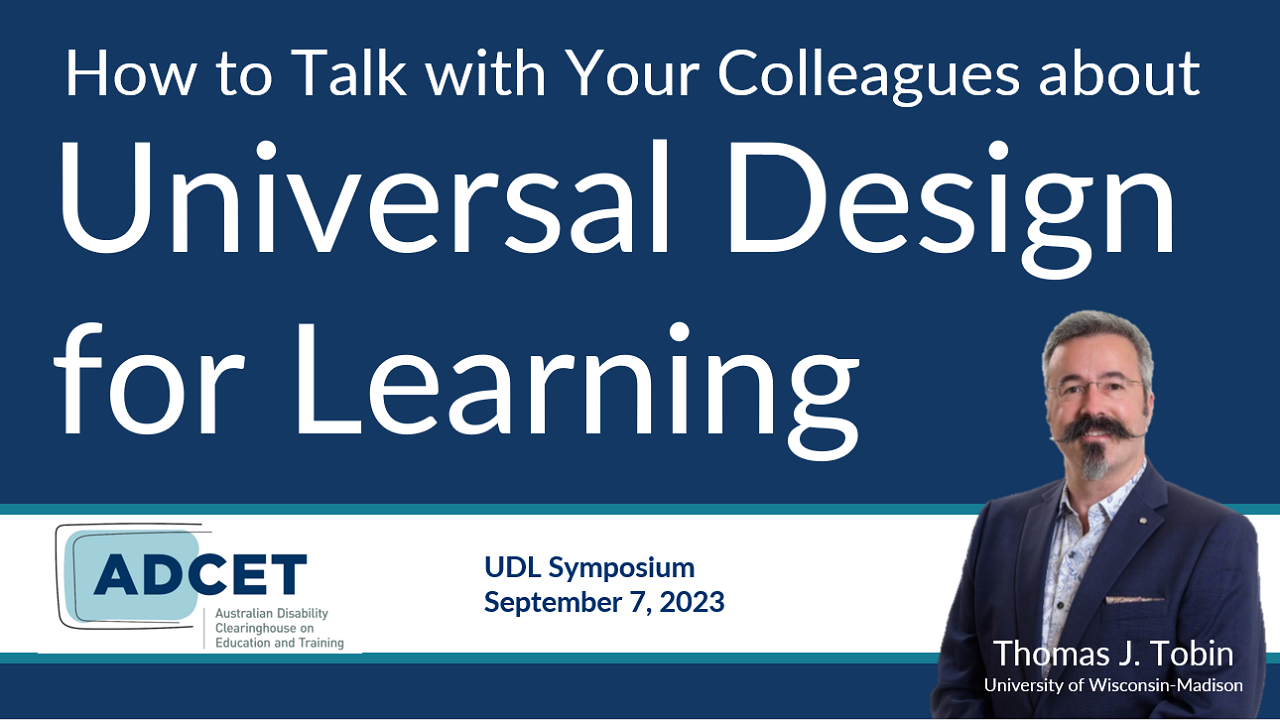
1F. How to Talk with Your Colleagues about Universal Design for Learning
This workshop shared concrete strategies for how to approach colleagues in productive ways to talk about UDL in their own work. It also explored how to talk with your campus leaders to get them to see the positive impact of UDL on campus operations (and on the budget), especially during times of disruption.
-
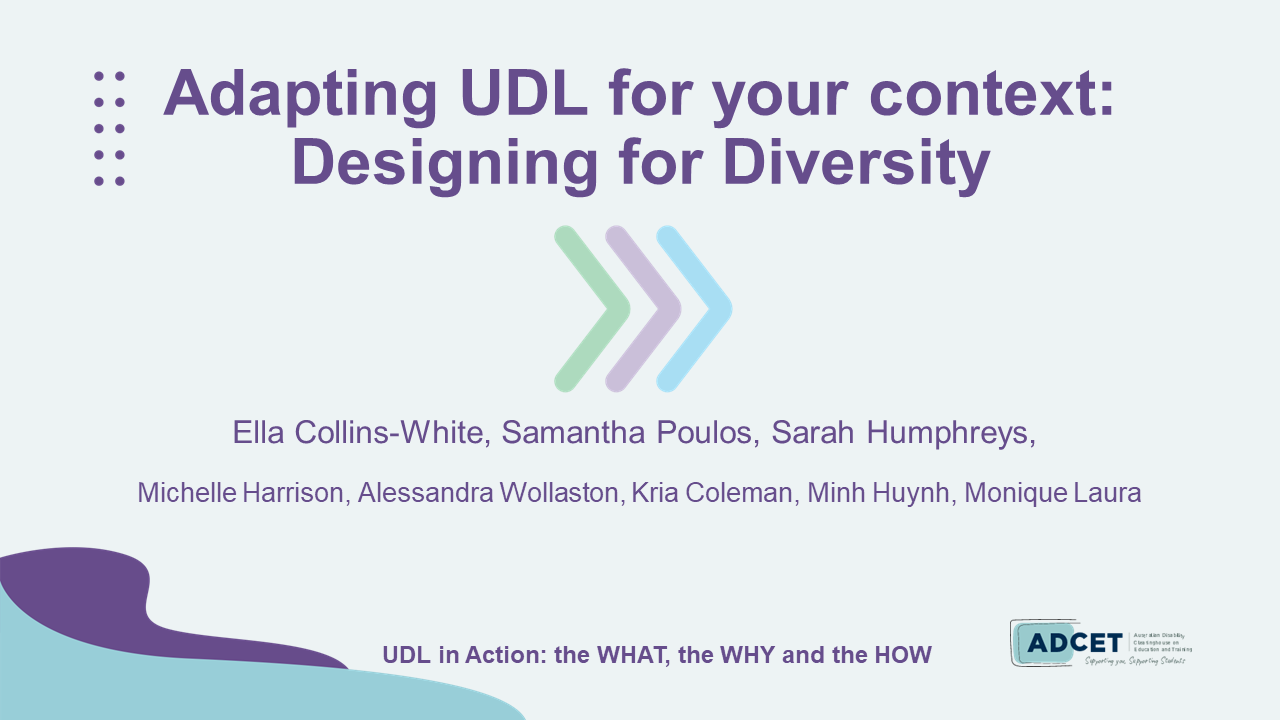
2F. Adapting UDL for your context - Designing for Diversity
This workshop focused on translating UDL for different contexts and showcasing how to adapt the framework to meet various challenges across subjects and faculties in the tertiary context. Their goal was to share their strategies for adapting UDL and to work with you to help translate it for yours.
-
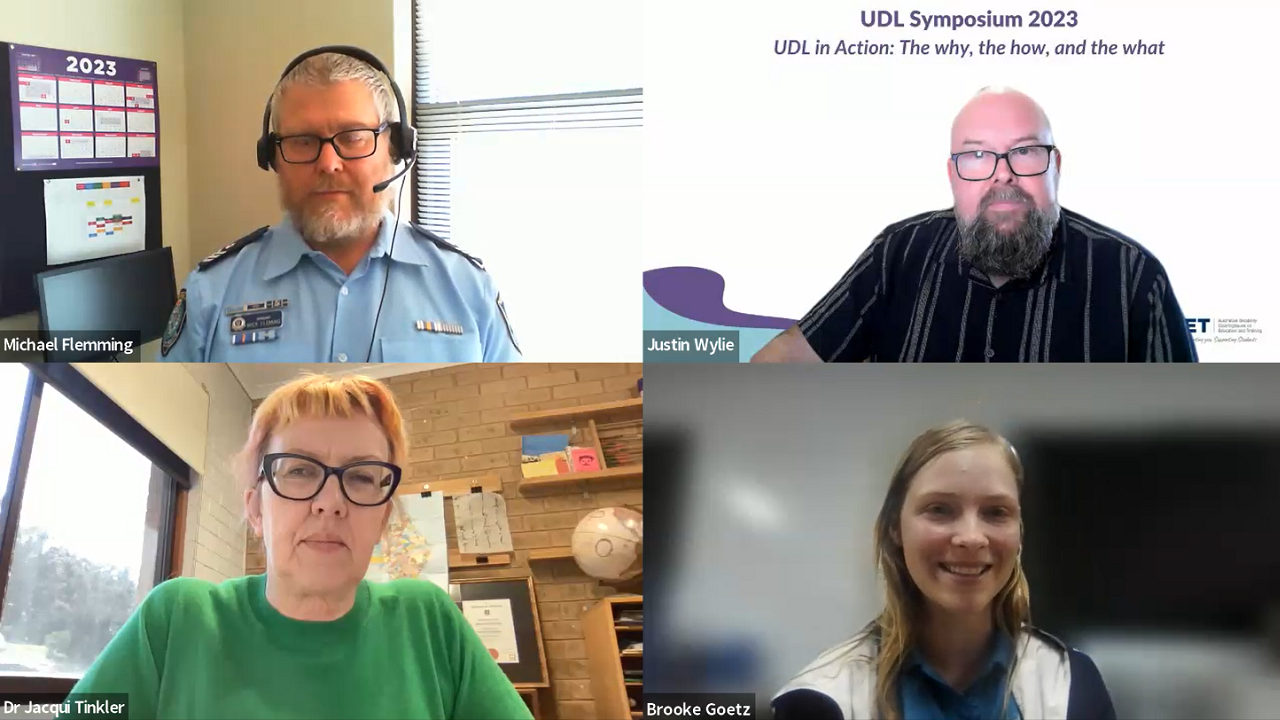
Plenary. Student Voices
This panel session was an opportunity to hear student perspectives. In conversation with educators and learning designers from their own institutions we hear firsthand how UDL can improve student engagement and learning.


